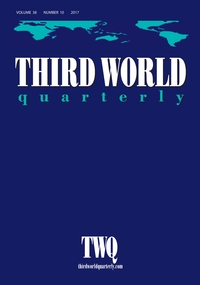 A journal has withdrawn an essay that called for a return to colonialism after the editor received alleged threats tied to the article.
A journal has withdrawn an essay that called for a return to colonialism after the editor received alleged threats tied to the article.
Soon after Third World Quarterly published the controversial essay, readers began to object. When the journal defended its decision, 15 editorial board members resigned in response. More than 10,000 people signed a petition to have it retracted. On September 26, the publisher posted a statement — including a detailed timeline of the paper’s peer review process — and said the the author had requested to withdraw the article. However, in the statement, the publisher said that “peer-reviewed research articles cannot simply be withdrawn but must have grounds for retraction.”
The journal has since changed its position, and withdrawn the paper entirely from its site, posting this notice in its place:

